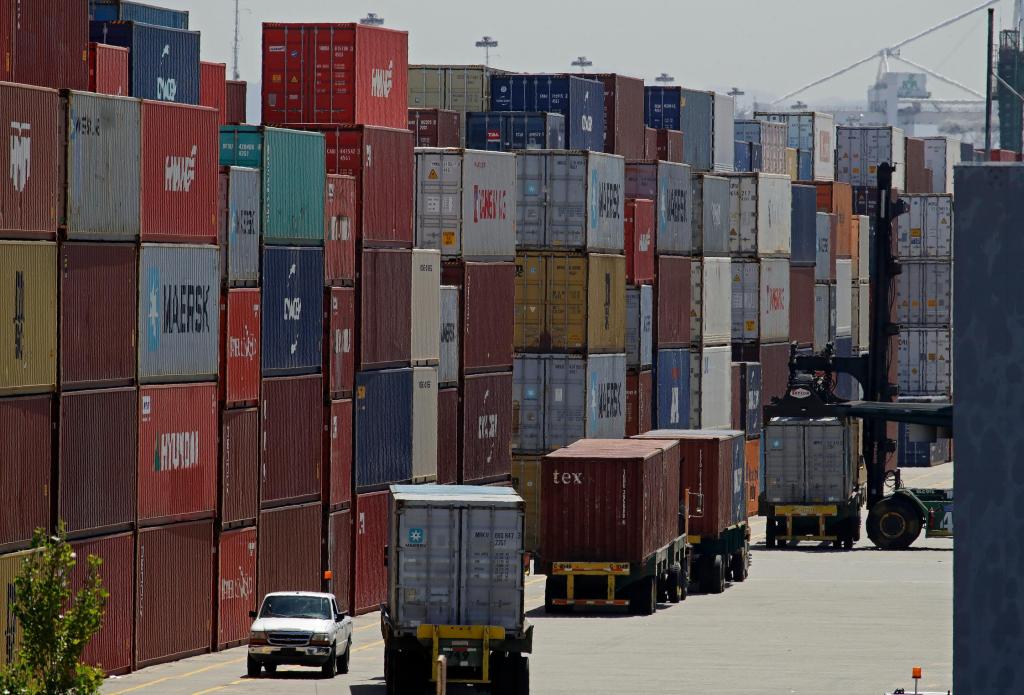Businesses dealing with the prospect of higher tariffs are girding for April 2, what President Donald Trump has called “Liberation Day,” the day he is expected to announce more tariffs on more countries sending goods to the U.S.
But the day of reckoning has already come for Colorado businessman Jeremy Petersen. His company Identity Pet Nutrition is subject to 25% tariffs imposed March 12 on aluminum and steel imports. He expects costs to escalate if the 25% tariffs on imports from Canada and Mexico go through as threatened.
“We’ve seen an across-the-board 11% price increase already just because of tariffs,” Petersen said.
The company Petersen co-founded in 2018 with his brother, Trevar, makes its pet food in Canada because it couldn’t find factories in the U.S. willing to produce the product, which is made with high-quality meat and produced in facilities fit for human food. If Trump levies the 25% tariff on several Canadian goods that he announced and then paused in early March, Petersen said the company will likely have to raise retail prices by nearly 33% to cover the cost hikes.
Another effect of the tariff turmoil, Petersen said, is that banks view the Windsor-based company, which is small but growing, as a risk because it produces all its pet food in Canada, making it vulnerable to higher tariffs. He said banks have reduced the company’s credit line and turned it down for loans. Business partners in Canada now want payment upfront.
“Small businesses are going to be impacted the most because we don’t have five to 10 years of financial resources to absorb the impact,” Petersen said. “We have to pass the cost along or go out of business.”
Trump raised tariffs during his first term as president, including on items from China, but they weren’t as broad and included several exceptions. He negotiated the United States-Mexico-Canada Agreement.
This time around, the Trump administration has proposed tariffs on Canada and Mexico, the country’s largest trading partners, and increased the taxes on goods from China. Trump has given a variety of reasons for higher tariffs: leverage to stem the flow of illegal immigration and drugs from Mexico and Canada; raising money for the U.S.; encouraging more domestic manufacturing; and evening the playing field with countries that have higher tariffs.
Trump has said he will announce sweeping reciprocal tariffs April 2, although this week he has talked about being flexible and maybe giving “a lot of countries breaks.” Reciprocal tariffs would match the levies set by other countries.
Krimson Klover, a Boulder-based, high-end women’s apparel company, is waiting to see which countries the administration will slap with higher fees. The company moved some of its manufacturing to Vietnam because of higher tariffs during Trump’s first term but still has production in China as well as Peru, Bulgaria and other locations.
Gail Ross, Krimson Klover’s chief operating officer, said in the wake of the new 20% tariffs on goods from China, the factories and the company might each absorb a third of the cost on clothes that have been ordered and pass along a third to customers. However, going forward, customers would likely pay more of the increases.
“If the tariffs are big, where do we go? Go to Europe? (Trump’s) threatening tariffs on Europe. We can’t go to Mexico. We can’t go to Canada,” Ross said.
“Tariffs are the sledgehammer”
When tariffs were raised in 2019, Krimson Klover, began looking for factories in the U.S. During a townhall organized by Farmers for Free Trade on March 5 in Denver, Ross said factories in this country weren’t interested because the company’s volume was too small or they couldn’t turn around the orders quickly enough.
“If the long-term goal is truly for us to be out of China, that’s not a problem. People can do that. They just need three to seven years to work on the investment part of making that happen,” Ross said. “The tariffs are the sledgehammer, but the way they’re being used, you can’t react fast enough.”
Krimson Kover hasn’t run into the same problems with financing that Identity Pet Nutrition has. Ross said the company, which started business in 2009, has long-term relationships with its banks. But Ross said the company is putting any big purchases or new hires on hold while the situation with tariffs remains in flux.


